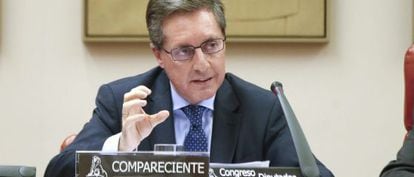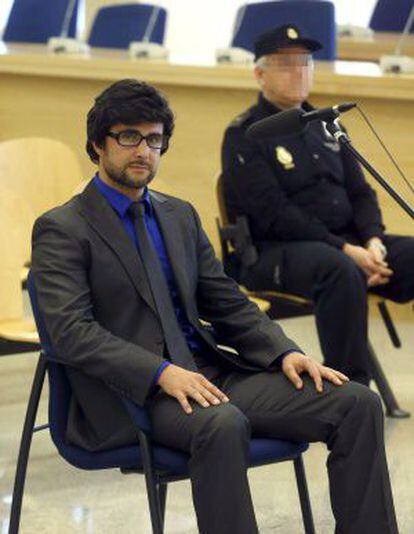Tax Agency probes 2012 “amnesty” over money-laundering suspicions
Around 700 cases are up for review from a total of 31,000 tax filings


The head of Spain’s Tax Agency on Tuesday announced an investigation into 705 individuals who benefited from a 2012 “tax amnesty” that may have been used for money-laundering purposes.
Director general Santiago Menéndez revealed this initiative during a congressional appearance to provide information about the agency’s ongoing fight against tax fraud.
Cases suspected of money laundering will be passed along to law enforcement agencies and state prosecutors for further investigation, he added.
The public was left with the impression that Spain’s big tax dodgers had been let off easy
The tax amnesty offered by the Mariano Rajoy administration shortly after the Popular Party (PP)’s victory at 2011 elections was meant to raise €2.5 billion in back taxes and shed light on at least €25 billion estimated to be hidden away in offshore accounts.
But as evaders were not forthcoming, the government lowered the penalty rates and included cash in the amnesty, opening the door to money launderers.
The results were a partial failure: the state collected only half as much as it was planning to, and the public was left with the impression that Spain’s big tax dodgers had been let off easy.
Now, the Tax Agency has decided to review the most suspicious cases.
“Whoever committed a crime of money laundering or asset stripping will still be held accountable,” warned Menéndez in Congress.
The tax chief said the 705 cases coming up for review are considered “a risk group” among the more than 31,000 forms that were filed under the amnesty. This is partly because those individuals regularized large amounts of money even though their regular tax filings show very little annual income.
Menéndez devoted much of his address to highlighting the PP’s achievements in the fight against tax fraud, noting that in 2014 the Tax Agency collected €12.3 billion, a 12.5-percent rise from the previous year and the best figure on record.

But the opposition criticized the government’s refusal to let HSBC whistleblower Hervé Falciani appear in Congress. In 2008, Falciani handed French authorities a list with hundreds of names of people holding accounts at the bank’s Swiss subsidiary. Among these there were more than 600 Spaniards, including several members of the Botín family, owners of the Santander banking group.
In 2010 the Spanish government, then under Socialist rule, offered Spaniards on the list the possibility of paying their back taxes and avoiding an inspection, a move that was considered by many a covert tax amnesty. A union of tax agency workers filed a criminal complaint against agency bosses, but the case had been languishing until last week, when it was reopened following renewed global interest in the “Falciani list” thanks to new revelations by a team of reporters led by the International Consortium of Investigative Journalists.
In July 2012 Falciani entered Spain, where he was detained and later released, becoming a protected witness who is helping anti-corruption prosecutors.










































